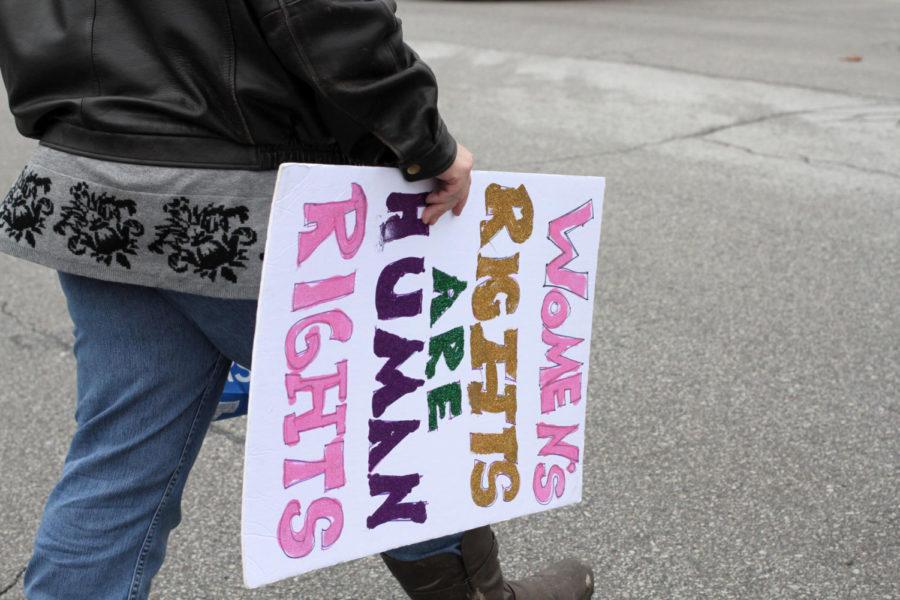Spanbauer: Women’s History Month deserves your attention
Hannah Olson / Iowa State Daily
Thousands hold signs relating to women’s health during the Women’s March on the Iowa Capitol on Jan. 21.
March 2, 2017
Each year, we dedicate months to certain heritages and groups of people in celebration of their culture and accomplishments. The month of March just so happens to be Women’s History month, but I bet you wouldn’t know that. I didn’t even know that.
Not to discredit the other and equally important heritage months such as Black History, or Hispanic Heritage Month, but Women’s History is often overlooked and underappreciated. Why is it that we forget to shine light on the largest population of human beings on Planet Earth?
What first began as a one-week celebration in Sonoma County, California, schools in 1978, in attempt to teach K-12 students about women’s history and women who have made significant marks in history, has now become a monthlong observance of the impact of women on the world.
In 1980, former President Jimmy Carter declared the week of March 8 to be recognized as Women’s History Week. Then, in 1987, former President Ronald Reagan made the week into a month.
The importance of having a month dedicated to women and girls is considerable. This is because we live in a world where women are not viewed as equal to men. Because we are considered to be a minority, yet we are the majority. Because we are underrepresented in history. Because we live in a patriarchy.
The lack of women we learn about in history class is reprehensible. This is in part because men, historically, have always had all the power and women who were able to make notable contributions to society and the world went largely unpraised. Women were also largely discouraged from doing anything besides being homemakers for much of history.
Today, we still don’t see enough representation of women in any industry besides entertainment.
Look at women in politics, for example. Women don’t even make up more than 26 percent in any area of government from Congress down to town mayors.
Women in STEM fields are terribly scarce, too. According to the National Science Foundation, 11.1 percent of physicists and astronomers are women. The smallest representation of women is in the mechanical engineering workforce at 7.9 percent. A common and naive delusion is that fewer women are found in these fields because we’re simply not as capable as men. However, these numbers, along with negative stereotypes, send the message that women aren’t as capable and discourage young women from pursuing such degrees.
In addition, women need to be celebrated for their sheer strength and determination throughout history in the battle for their rights. Women have had to fight for everything that men have had handed to them. Women have had to protest, march and petition in order to be granted even the most basic and Constitutional of rights. Women had to fight for the right to vote, the right to play the same sports as men and the right to proper health care, including contraceptive care. Most of all, women have always, and still are, fighting to be taken seriously.
By not properly observing Women’s History Month, society is saying that women’s accomplishments are not as credited as men’s. It tells women that they are lesser to their male counterparts, even when they succeed in overcoming the patriarchal system.
Young children who grow up celebrating every month except Women’s History grow up with the notion that celebrating women isn’t as significant and, thus, women aren’t as significant. That couldn’t be less true, however.
Strong-willed and determined women have created the world we live in today. I can vote thanks to Susan B. Anthony. I owe it to Elizabeth Smith Miller for my ability to wear jeans on a daily basis instead of skirts or dresses. Thanks to Valentina Tereshkova, I know women can become astronauts and make it to space.
It is important to make a bigger deal out of Women’s History Month than we currently are. Having a month dedicated to women in such a manner illustrates women’s potential and power to succeed and make just as big of an impact as men can.







